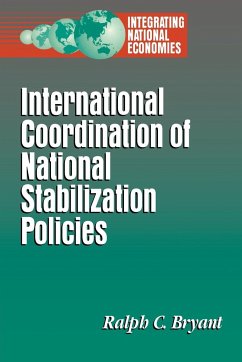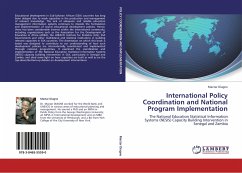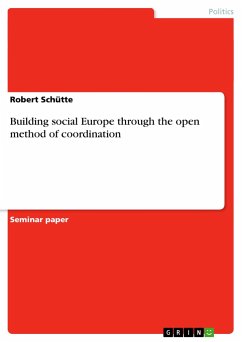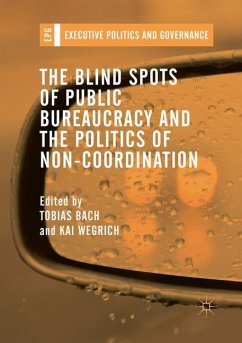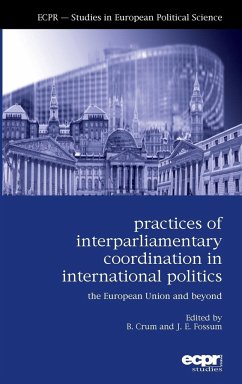
Practices of Interparliamentary Coordination in International Politics
The European Union and Beyond
Herausgeber: Crum, Ben; Fossum, John Erik
Versandkostenfrei!
Versandfertig in 1-2 Wochen
109,99 €
inkl. MwSt.

PAYBACK Punkte
55 °P sammeln!
Parliaments risk becoming the main losers of internationalisation; a process that privileges executives and experts. Still, parliamentarians have developed a range of responses to catch up with international decision-making: they coordinate their actions with other parliamentarians; engage in international parliamentary forums; and some even opt to pursue political careers at the supranational level, such as in the European Parliament. This volume provides a thorough empirical examination of how an internationalising context drives parliamentarians to engage in inter-parliamentary coordination...
Parliaments risk becoming the main losers of internationalisation; a process that privileges executives and experts. Still, parliamentarians have developed a range of responses to catch up with international decision-making: they coordinate their actions with other parliamentarians; engage in international parliamentary forums; and some even opt to pursue political careers at the supranational level, such as in the European Parliament. This volume provides a thorough empirical examination of how an internationalising context drives parliamentarians to engage in inter-parliamentary coordination; how it affects their power positions vis-à-vis executive actors; among themselves; and in society in general. Furthermore, building upon these empirical insights, the book assesses whether parliamentary democracy can remain sustainable under these changing conditions. Indeed, if parliaments are, and remain, central to our understanding of modern democracy, it is of crucial importance to track their responses to internationalisation, the fragmentation of political sovereignty, and the proliferation of multilevel politics.





